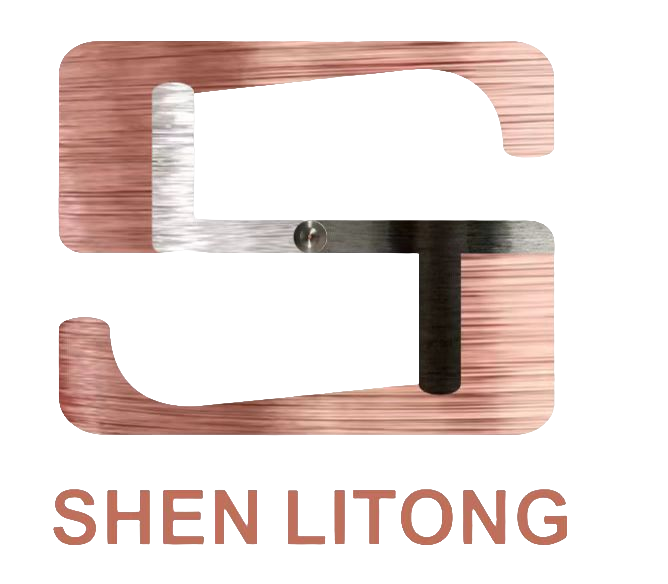English
News
-
 Read More
Read More
Targeted Solutions For Frequent Wire Breaks In Multi-Head Wire Drawing Dies
Strengthen the incoming inspection of copper rods, control the oxygen content to be ≤500ppm, and remove the billets with inclusions and cracks.
-
 Read More
Read More
The Reasons For Frequent Wire Breaks In Multi-Head Wire Drawing Dies
Frequent wire breaks in multi-head wire drawing production are systemic process issues, mainly involving the following causes and countermeasures:
-
 Read More
Read More
What is PCD Dies?
In modern manufacturing industries, precision, durability, and efficiency are essential for success. One tool that plays a vital role in achieving these goals is the PCD die. But what exactly is a PCD die, and why is it so widely used today?
-
 Read More
Read More
How Do Wire Manufacturers Choose Wire Drawing Dies
The following is a systematic guide for wire manufacturers to choose wire drawing die, integrating technical parameters, cost efficiency and industry practice
-
 Read More
Read More
What is the Price of TC Die?
In the manufacturing world, especially in wire and cable production, TC dies — short for Tungsten Carbide dies — are essential tools. Their durability and high precision make them a preferred choice across industries. However, one common question many buyers ask is: what is the price of a TC die?
-
 Read More
Read More
The Importance Of Hole Design For Multi-Head Wire Drawing Dies
The core value of the hole design for multi-head wire drawing dies lies in ensuring the precision stability and production efficiency of multi-hole synchronous processing.
-
 Read More
Read More
What is the Full Form of TC Drawing Die?
In the wire and cable manufacturing industry, precision and durability are critical. Among the essential tools that ensure high-quality production is the TC drawing die. But what exactly does "TC" stand for, and why is it so important?
-
 Read More
Read More
What Are Diamond Dies?
In the world of manufacturing and precision engineering, certain tools are indispensable for producing high-quality products. Among these tools, diamond dies stand out as some of the most efficient and durable materials used in various industries. But what exactly are diamond dies, and why are they so critical in modern manufacturing? Let's take a closer look at this vital tool and its applications.
-
 Read More
Read More
Can Diamonds Be Used as Dies for Drawing Wires?
When thinking about diamonds, most people imagine sparkling jewelry. However, in the world of industrial manufacturing, diamonds have a far more practical and vital role — particularly in wire drawing. Yes, diamonds can be used as dies for drawing wires, and they have become a preferred material for creating ultra-precise and durable wire products across a range of industries.
-
 Read More
Read More
Design of Multi-Head Wire Drawing Die
The entrance zone mainly serves to guide the metal wire to smoothly enter the die. Its shape is usually a bell mouth, with an angle generally between 60° and 90°. For example, when drawing copper wire, the entrance angle can be set at around 70°, which can reduce the resistance when the wire enters the die.
-
 Read More
Read More
Exploring the Applications of Diamond PCD ND Wire Drawing Dies
In the wire manufacturing industry, precision and durability are non-negotiable. Among the most critical components ensuring high-quality production are Diamond PCD ND Wire Drawing Dies. These advanced tools have revolutionized the way industries approach wire drawing, offering unmatched performance and longevity. Let’s explore the key applications and benefits of these exceptional dies.
-
 Read More
Read More
How to Properly Maintain Solid Stranding Dies for Optimal Performance
Solid stranding dies play a critical role in the wire and cable manufacturing industry, ensuring precise shaping and consistent quality during production. To keep these essential tools operating at peak efficiency, proper maintenance is key. Neglecting upkeep can lead to reduced die life, inconsistent product quality, and increased production costs. Here’s a guide on how to maintain solid stranding dies effectively.
 English
English Español
Español Português
Português русский
русский français
français 日本語
日本語 Deutsch
Deutsch Tiếng Việt
Tiếng Việt Nederlands
Nederlands ไทย
ไทย Polski
Polski 한국어
한국어 Svenska
Svenska magyar
magyar Malay
Malay বাংলা
বাংলা Dansk
Dansk Suomi
Suomi हिन्दी
हिन्दी Pilipino
Pilipino Türk
Türk Gaeilge
Gaeilge عربى
عربى Indonesia
Indonesia norsk
norsk čeština
čeština Ελληνικά
Ελληνικά Українська
Українська नेपाली
नेपाली Burmese
Burmese български
български ລາວ
ລາວ Latine
Latine slovenský
slovenský Lietuvos
Lietuvos












